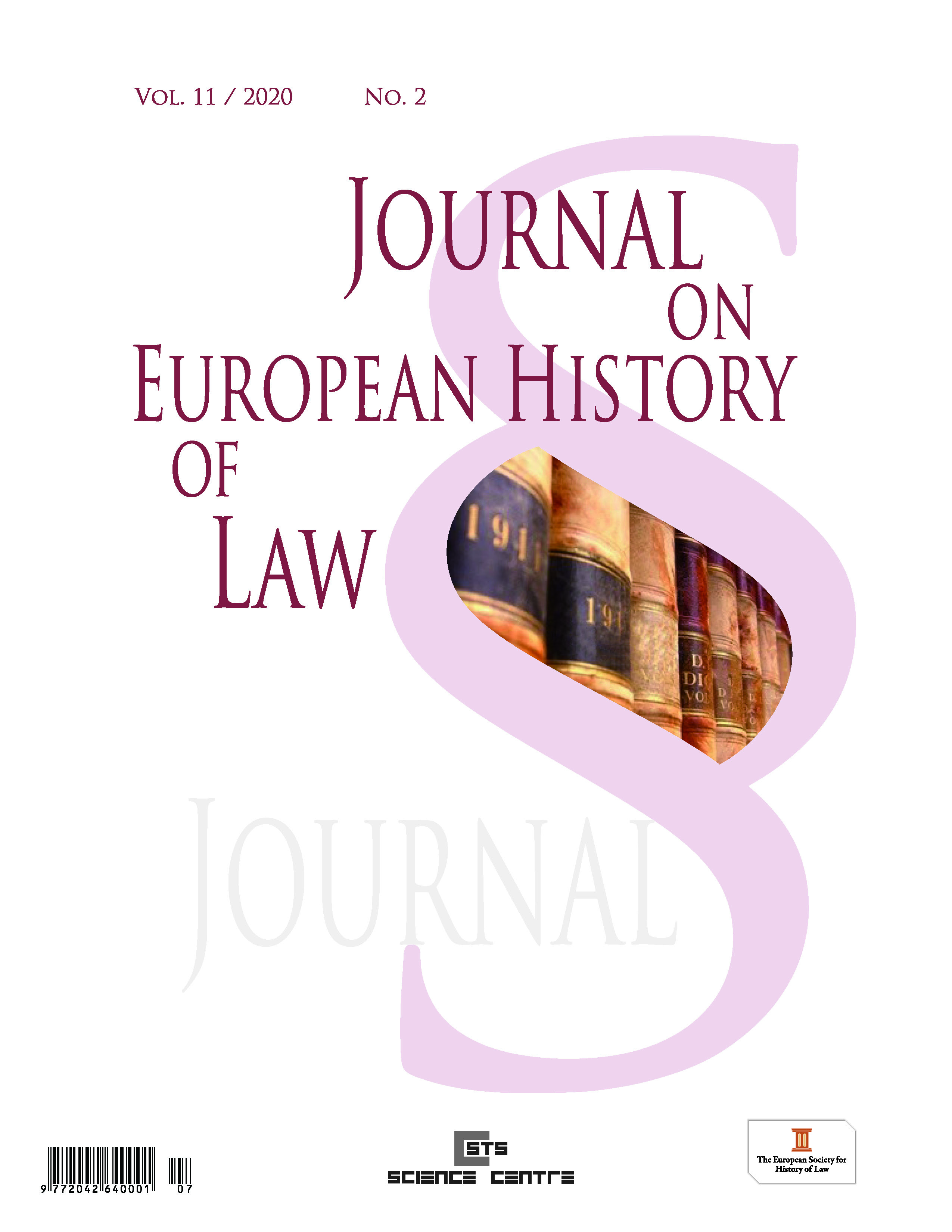The Advocates in Byzantium during 12th Century according to “Ecloga Basilicorum”
The Advocates in Byzantium during 12th Century according to “Ecloga Basilicorum”
Author(s): Theodore I. KazazakisSubject(s): History, History of Law, 6th to 12th Centuries
Published by: Evropská společnost pro právní dějiny, z.s.
Keywords: Advocates; Ecloga Basilicorum; the requirements of being an advocate; women; handicapped; clergy; Jews; heretics and foreign people; practicing of the law and legal ethics; secular and church courts;
Summary/Abstract: The concept of rule of law is interlinked with the presence of advocates, as protectors of the interest of their clients. Advocates existed in Byzantium and their status and organization were linked to the rise and decline of legal studies. Most of our knowledge about the role of advocates in Byzantine legal system comes from the Justinian era and his codification of Roman Law, in contrast to the period of 12th century with the decline of secular lawyers and the rise of canon law, where there are scattered passages in legislation and literature about the role of advocates, their practice and their obligations towards the state or their clients. The aim of this note, dealing with the role of advocates in Byzantium during that period is to show how the profession of advocates has been evolved in that period, what where the requirements to become one, what was their legal training, their organization and their status, their daily practice of law and their legal ethics, based in the provisions of “Ecloga Basilicorum”, a legal text of that period, used and commented mainly about the court system and the judges serving it.
Journal: Journal on European History of Law
- Issue Year: 11/2020
- Issue No: 2
- Page Range: 57-67
- Page Count: 11
- Language: English

